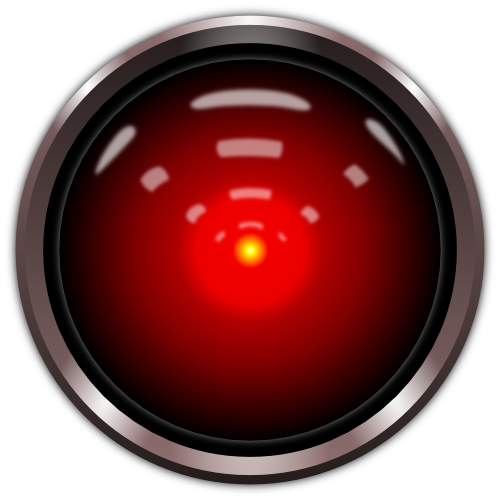

No chess-playing machine could possibly make a mistake in reporting a chess position. Schlage, (1) played in 1913, and reported by the German news magazine "Der Spiegel." This makes it exceedingly unlikely that this is a gaffe. Moreover, I have recently been informed by Gerrit Bodde that this game was taken from a master game, Roesch vs. Being a chess enthusiast and a film perfectionist, I wouldn't think he would allow such a gaffe to crop up in a film of his. Kubrick, having played chess extensively in his youth, is well aware of this. In descriptive notation, ranks are always given from the point of view of the side making the move. checkmate) when he begins by saying "Queen to Bishop three" instead of the correct "Queen to Bishop six." Playing white, Frank's "Queen takes Pawn," HAL counters with, "Bishop takes Knight's Pawn," and Frank plays "Rook to King One." HAL then makes a 'mistake' in announcing a forced mate (i.e. The initial position shown on the computer screen is: The first piece of evidence arises from the chess game between Frank Poole and HAL.

Hal 9000 scene movie#
However, the 2001 novelization and its sequels differ in many respects from Kubrick's movie, so I will exclude them from my examination, and refer exclusively to the movie for evidence Clarke, in his sequel novel "2010: Odyssey Two" says (in effect) that HAL went mad due to conflict in his programming. This alternative theory will be presented here, with supporting evidence.īefore proceeding, let us acknowledge that Arthur C. However there is an alternative theory: that HAL acted rationally and logically, indeed with cold, calculating precision befitting a machine of his intelligence. Some viewers of Stanley Kubrick's film "2001: A Space Odyssey" have theorized that HAL, the computer genius turned villain of the spaceship Discovery, went mad during the Jupiter mission. The Kubrick Site: The Case For HAL's Sanity


 0 kommentar(er)
0 kommentar(er)
